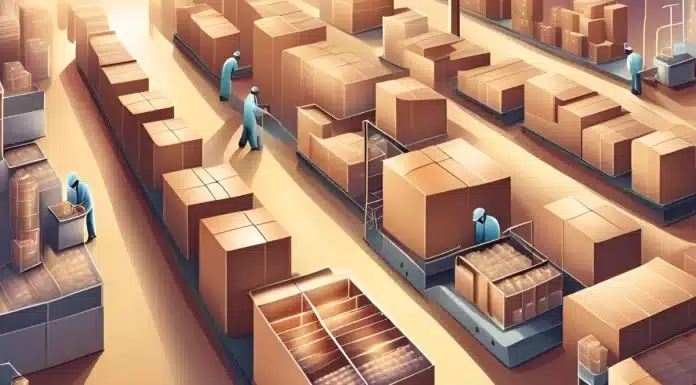Have you ever wondered whether the ERP packaging industry needs a specific type of ERP? With operations that span manufacturing, packing, and even retail, many businesses in the Philippines are only now realizing how crucial ERP is for keeping workflows fast, accurate, and synchronized. If your processes still feel scattered or manual, this might be the sign you’ve been waiting for.
Inkwood Research reports that the ERP market in the Philippines is growing rapidly, with a CAGR of around 12% from 2022–2028. This trend aligns with findings that packaging companies achieve higher accuracy and faster order fulfillment using industry-specific ERP systems, as integrated modules streamline procurement, inventory, production, and delivery across the entire packaging lifecycle.
Quick Overview of the 7 Best ERP for Packaging Industry in 2025
- HashMicro – Best all-in-one solution for end-to-end packaging operations.
- ePS Packaging – Best for packaging-focused workflow automation.
- SapphireOne – Best for multi-site operations with real-time insights.
- QAD ERP – Best for manufacturing-driven packaging processes.
- Ebizframe – Best for smart factory and IoT-enabled automation.
- Katana – Best for cloud-based production and e-commerce integration.
- WinMan – Best for supply chain control and production scheduling.
Key Takeaways
|
Table of Contents
What is ERP for the Packaging Industry?
ERP for the Packaging Industry is a specialized system designed to manage and streamline every stage of ERP packaging operations—from procuring materials and overseeing inventory to coordinating production and ensuring timely delivery. Implementing an ERP system in this sector helps streamline operations, from inventory management to production processes.
An ERP for the packaging industry ensures that resources are used efficiently and reduces errors that can lead to costly production delays. Furthermore, the system provides real-time insights into production data, allowing businesses to make informed decisions quickly and effectively.
5 ERP Modules for the Packaging Industry That Boost Your Efficiency
Before knowing the recommendations for ERP vendors for the packaging industry, it helps you to know the types of ERP modules that are important to you. These modules include:
- F&B technology: The F&B industry, vital for food and drink services, often combines meal preparation with product sales. Hash F&B Technology streamlines operations like order management and inventory, enabling businesses to focus on growth.
- Trading & distribution: This module is a solution for trading companies, distributors, and wholesalers. It streamlines inventory, procurement, and financial management to enhance efficiency and competitiveness.
- Retail innovation: This streamlines sales, inventory, customer management, and financial reporting across multiple branches, ensuring efficient operations.
- Manufacturing: The software helps streamline production, ensuring companies meet demand while maintaining high-quality standards.
- Construction suite: The system ensures that businesses can manage their projects efficiently, reducing risks and improving overall success.
Functions of ERP for the Packaging Industry
Implementing an ERP system in the packaging industry serves several essential functions that help streamline operations and maintain smooth end-to-end workflows. Here are the key functions:
- Centralizing operational processes
An ERP system brings all core packaging operations—procurement, inventory, production, and distribution—into one integrated platform, ensuring every department works with the same accurate data. - Streamlining production workflows
ERP optimizes production planning by coordinating material availability, machine schedules, and workforce allocation, helping prevent bottlenecks and delays. - Enhancing resource utilization
With automated tracking of raw materials, work-in-progress, and finished goods, ERP helps packaging companies reduce waste and use resources more efficiently. - Providing real-time operational visibility
ERP delivers instant insights into production status, material usage, and order progress, allowing businesses to make quick, informed decisions. - Reducing errors and improving compliance
By automating repetitive processes, ERP minimizes manual input errors and helps companies maintain consistency, accuracy, and regulatory compliance across operations.
Benefits of ERP for the Packaging Industry
Beyond its core functions, ERP also brings significant advantages that strengthen overall performance in packaging companies. Below are the key benefits:
- Improved operational efficiency
ERP automates procurement, inventory tracking, production scheduling, and order management, reducing manual work and speeding up daily operations. - Higher production accuracy
With better control over materials, batch levels, and production workflows, ERP helps minimize errors, maintain consistent quality, and reduce waste. - Complete visibility across departments
ERP connects all units—from purchasing to production to delivery—giving teams a real-time view of operations and allowing issues to be identified early. - Stronger collaboration and communication
Because all data lives in one unified system, teams can work together more effectively, ensuring smoother coordination across the business. - Data-driven decision-making
ERP provides dashboards and real-time analytics that help managers evaluate performance, forecast demand, and make strategic decisions confidently. - Scalability for business growth
ERP systems are built to grow with the company, supporting higher order volumes, expanded product lines, and more complex production flows.
7 Best ERP for Packaging Industry that Suits Filipino Businesses
Leveraging advanced ERP solutions in the competitive packaging industry is crucial to streamline workflows, optimize resource management, and maintain a competitive edge. Here are seven ERP solutions that stand out for Filipino packaging companies:
1. HashMicro ERP for Packaging Industry
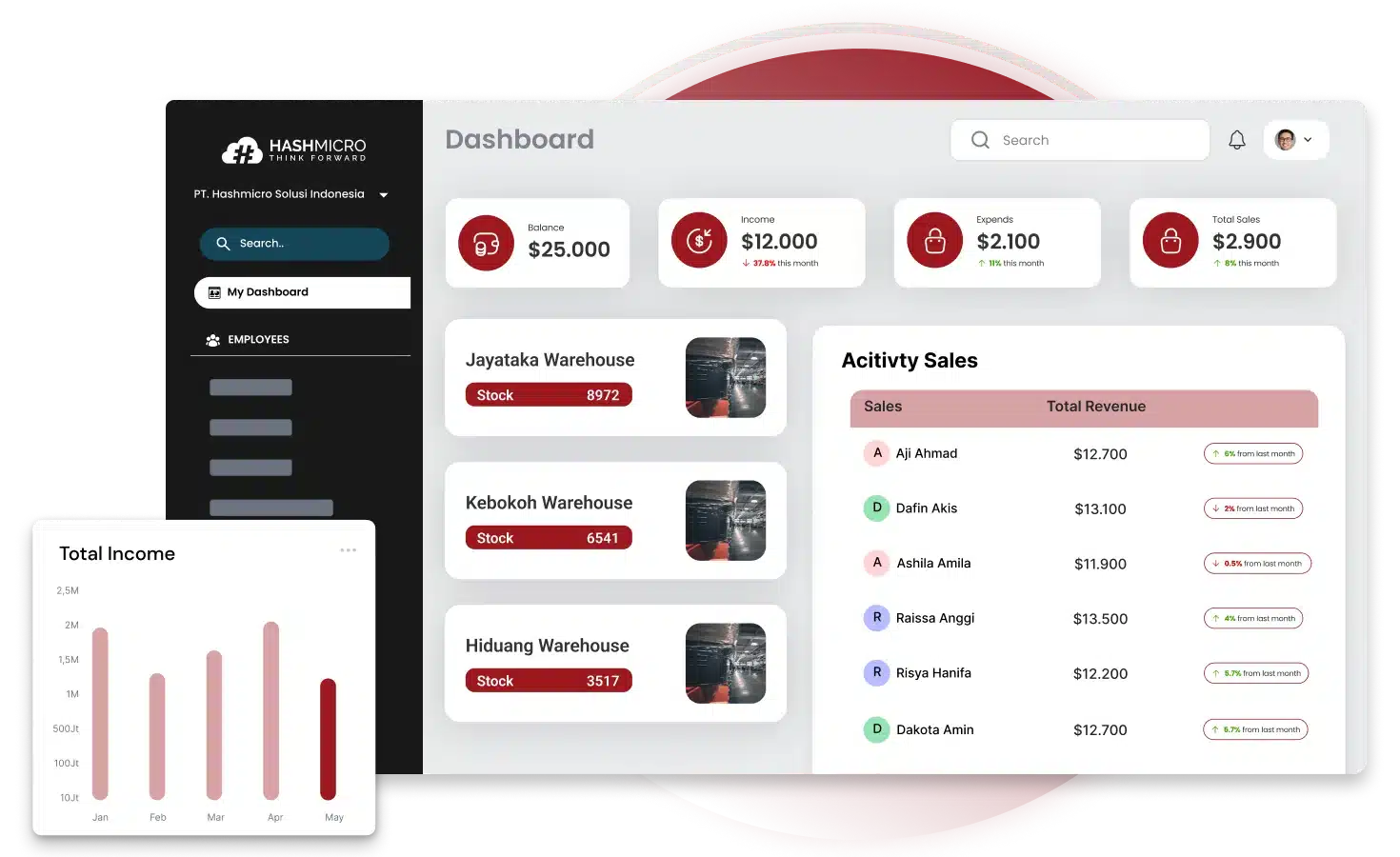
HashMicro started in 2015 and has become a prominent player across Southeast Asia’s ERP market. The company’s ERP system for the packaging industry is designed to streamline operations and enhance productivity through automation and advanced resource management features.
Key features:
- Built-in BI (Business Intelligence): Tools to transform and rotate data from different angles for more in-depth analysis.
- WhatsApp integration: Simplify, speed up, and streamline business communication.
- Mobile apps: The app is available on iOS and Google Play Store platforms, allowing easy access from various mobile devices.
- Sheet management: Efficiently manage, automate, and analyze spreadsheets or business documents in spreadsheet format while ensuring data security and module integration.
- Access-level: Features that manage and restrict employee access to various data and functions in the system based on roles and responsibilities.
| Pros | Cons |
| Unlimited users | It is more suited for medium to large businesses due to its comprehensive features. |
| Comply with local regulations in the Philippines | |
| Excellent customer support | |
| Easy integration with third-party apps | |
| Customizable to specific needs | |
| Strong localization for Southeast Asia |
HashMicro ERP delivers a complete, customizable solution that streamlines production, enhances resource control, and unifies operations across procurement, inventory, and delivery—making it a strong, scalable choice as an ERP for the printing industry, particularly for packaging businesses in Southeast Asia. Try the free demo now and experience how it transforms your workflow.
Table of Contents
2. ePS Packaging

ePS has established itself as a global leader in the print and ERP packaging sectors. It has deep workflow automation, cost reduction, and business transformation expertise. Its ERP for food packaging industry integrates seamlessly with production workflows, improving overall performance and operational transparency.
Key features:
- Advanced production scheduling
- Integrated supply chain management
- Customizable reporting and analytics
- Multi-site management support
- Automated order tracking
| Pros | Cons |
| Strong industry focus | The user interface can be overwhelming initially |
| Excellent integration options | The steep learning curve for new users |
| Scalable for growing businesses | Limited mobile access features |
| High transparency in operations | Customer support response time may vary |
3. SapphireOne ERP
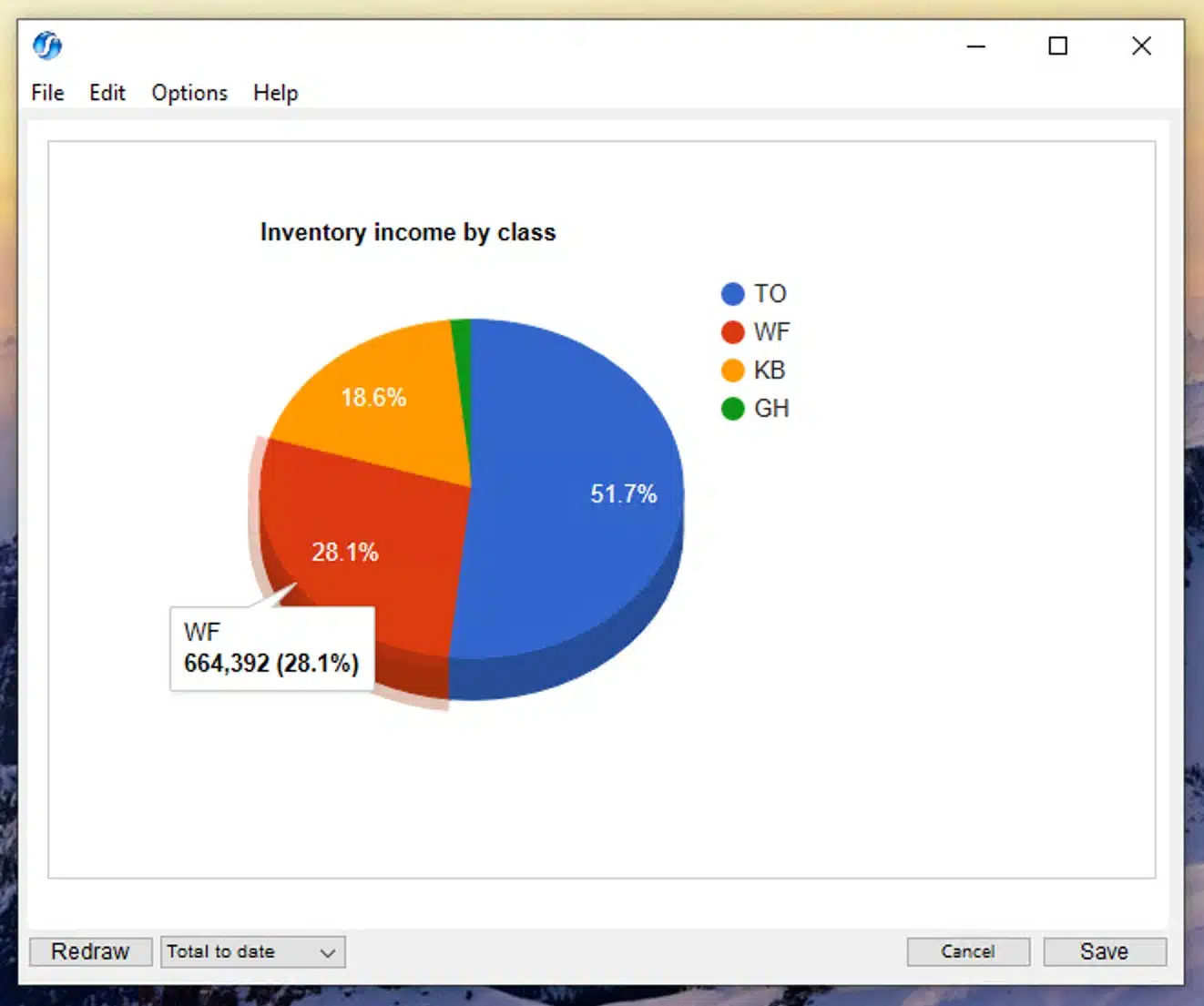
SapphireOne has been a key player in providing ERP software Philippines for the packaging industry. Their system is equipped to handle multi-location operations, offering seamless inventory management and real-time production insights that reduce material wastage and optimize resources.
Key features:
- Real-time financial management
- Advanced materials resource planning (MRP)
- Warehouse and inventory tracking
- Integrated customer relationship management (CRM)
- Forecasting and strategic planning tools
| Pros | Cons |
| Comprehensive reporting capabilities | It may not be suitable for smaller businesses |
| Highly customizable for specific needs | Customization can increase implementation time |
| Real-time insights and forecasts | Integration with non-native apps may be complex |
| Strong multi-site support | Limited availability of certain industry-specific tools |
4. QAD ERP
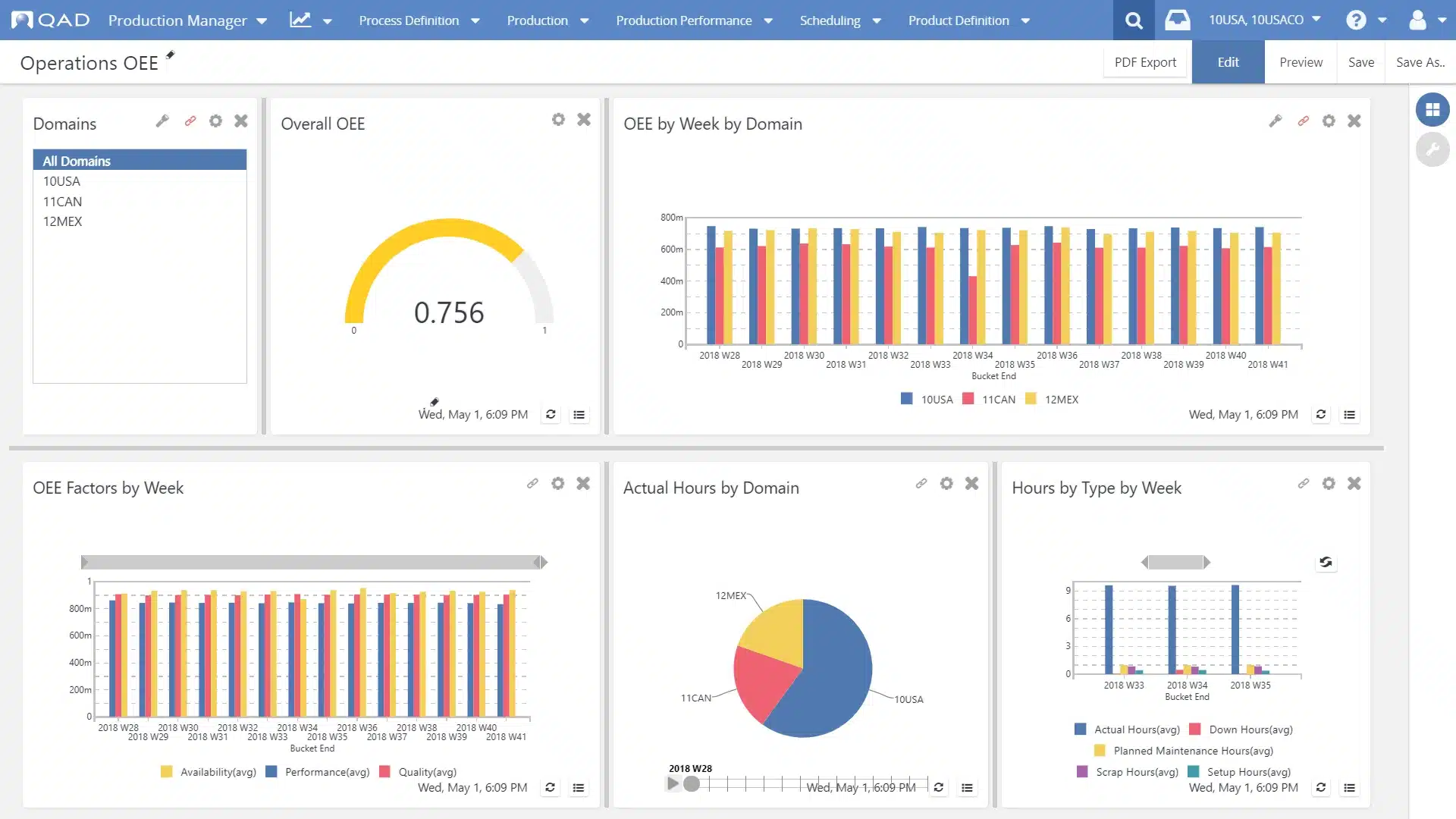
Founded in 1979, QAD ERP software for packaging industry has grown into one of the best providers. Their ERP software for the packaging sector provides comprehensive tools for managing production, procurement, and supply chains, ensuring streamlined operations from start to finish.
Key features:
- Adaptive manufacturing solutions
- Supplier and vendor relationship management
- Inventory control with real-time tracking
- Flexible cloud and on-premise deployment
- Built-in compliance management
| Pros | Cons |
| Flexible deployment options | Initial integration can be complex |
| Adaptive solutions for various industries | High upfront costs for implementation |
| Strong manufacturing focus | Requires periodic updates and maintenance |
| Excellent supply chain tools | Limited local support for smaller regions |
5. Ebizframe ERP
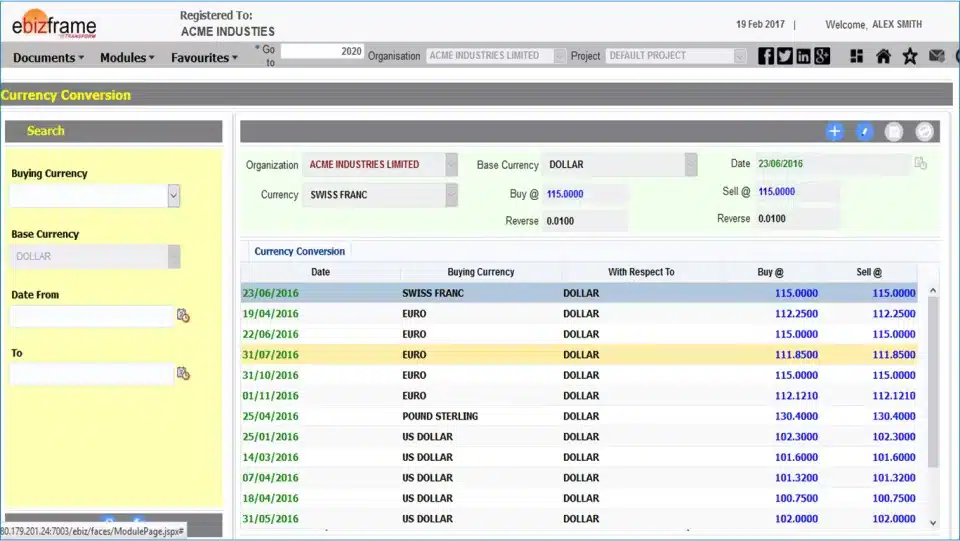
Ebizframe is known for its smart ERP software that integrates IoT and AI technologies. These systems offer automation across business processes, especially in manufacturing and packaging. This ERP enables packaging companies to enhance production capabilities and stay competitive.
Key features:
- Smart factory integration
- Real-time production monitoring
- IoT-enabled process automation
- Predictive maintenance tools
- Advanced analytics and reporting
| Pros | Cons |
| Seamless IoT integration | Limited customization for smaller companies |
| Excellent predictive tools | High setup costs for advanced features |
| Strong automation capabilities | It may require dedicated IT support |
| Real-time monitoring | Long implementation timeline |
6. Katana ERP
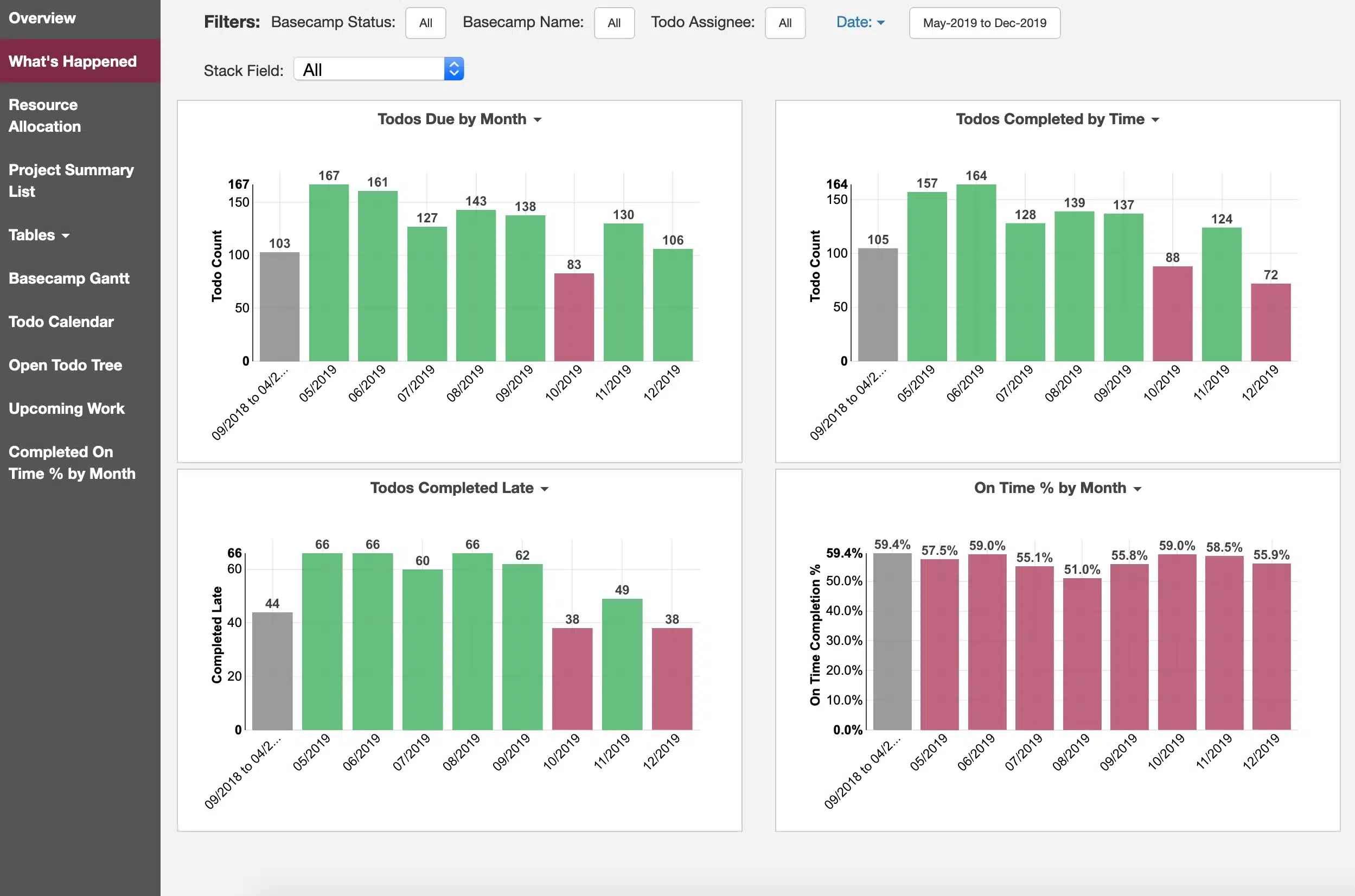
Katana has an ERP system benefits for packaging industry with its inventory management and order tracking. It integrates seamlessly with e-commerce platforms, making it an excellent choice for packaging companies with online sales operations.
Key features:
- Real-time production planning
- Automated reorder management
- E-commerce integration (Shopify, WooCommerce)
- Barcode scanning and inventory control
- Custom API integration
| Pros | Cons |
| Excellent for cloud-based businesses | Limited offline capabilities |
| User-friendly interface | Limited advanced features for larger businesses |
| Seamless e-commerce integration | It can be expensive for large-scale operations |
| Real-time inventory tracking | Fewer customization options |
7. WinMan ERP
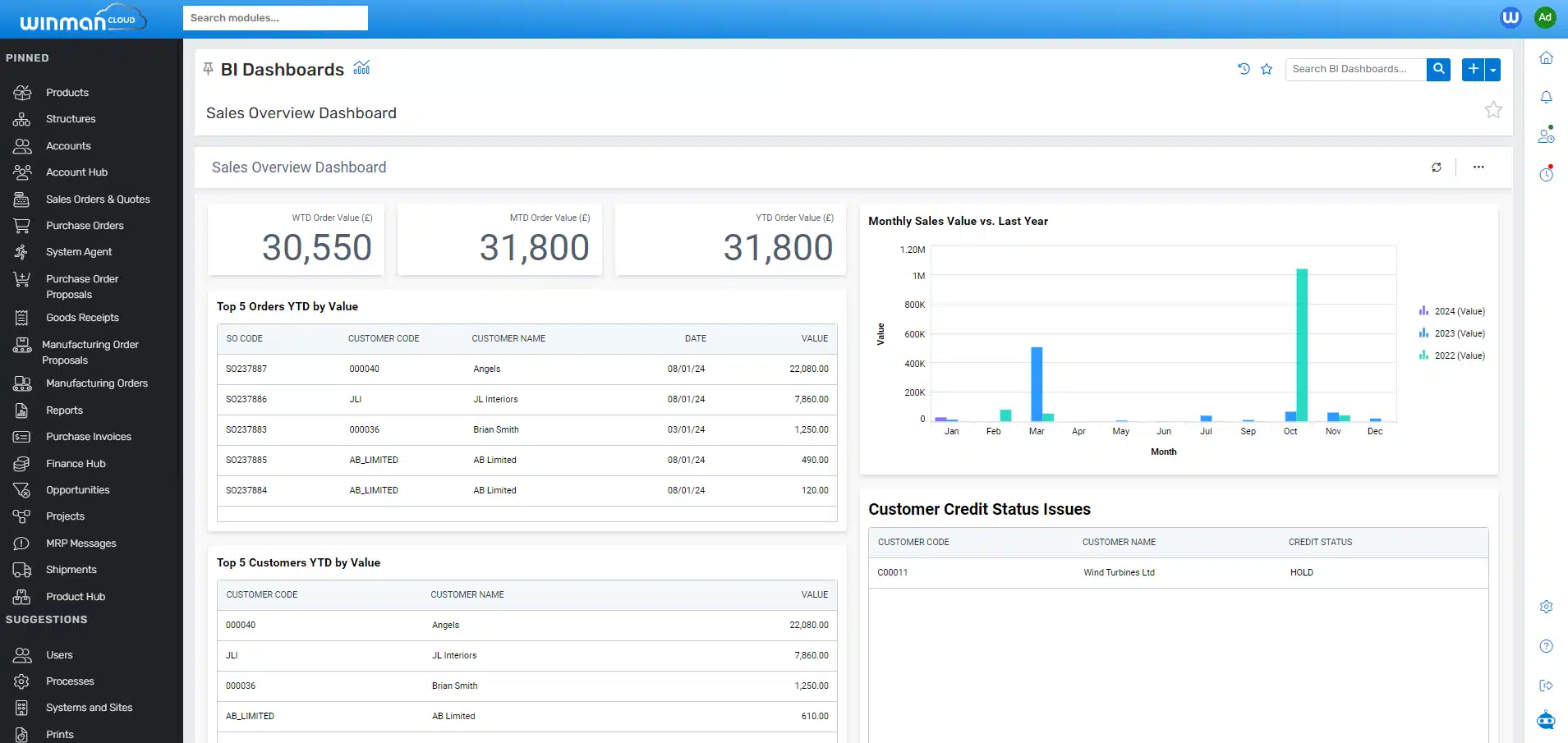
WinMan has been providing ERP solutions specifically designed for manufacturing and distribution industries, including ERP packaging. Their highly scalable ERP for printing and packaging industry helps businesses streamline their supply chain operations, from procurement to delivery.
Key features:
- Comprehensive supply chain management
- Automated production scheduling
- Multi-currency and multi-language support
- Integration with third-party apps
- Built-in reporting tools
| Pros | Cons |
| Strong supply chain tools | Requires customization for smaller businesses |
| Excellent third-party integrations | The steep learning curve for new users |
| Multi-language support | Customer support can be limited |
| Great scalability | High initial setup costs |
How to Choose the Best ERP for Packaging
Selecting the right ERP (Enterprise Resource Planning) software for your packaging business is a critical decision that impacts productivity, efficiency, and scalability. Here’s a guide to help you make an informed choice:
- Understand your business needs
- Look for automation and real-time data-tracking features
- Ensure ERP offers strong integration with existing systems
- Prioritize user-friendly platforms with excellent support
- Evaluate system scalability for future growth
- Review pros and cons such as UI, UX, and implementation time
Conclusion
Choosing the best ERP for your packaging business requires a clear understanding of your needs and industry demands. Prioritize solutions that offer automation, real-time data tracking, and strong integration capabilities to streamline operations and improve efficiency.
In conclusion, HashMicro stands out as the best ERP provider for the packaging industry, offering a powerful, customizable, and fully integrated solution that streamlines every stage of operations—from procurement and inventory to production and delivery. With advanced automation, strong localization, and scalable modules built for real business growth, HashMicro delivers the reliability and efficiency packaging companies need to stay competitive and future-ready.
If you want a comprehensive solution, try HashMicro ERP for the packaging industry. It offers a free demo and features tailored to streamline packaging processes so you can see how its software transforms your operations efficiently.

FAQ About ERP for Packaging Industry
-
What is ERP in plastic industry?
ERP software in the plastic industry helps businesses run better by organizing key tasks like production, inventory, quality checks, and sales. It combines all these processes in one system, making it easier to manage materials, track orders, and ensure products meet standards. This helps companies work more efficiently, save time, and make better decisions for growth.
-
What is ERP in product management?
ERP in product management is software that helps businesses manage product design, development, inventory, and sales in one system. It improves planning, reduces errors, and helps teams work together to launch and manage products more effectively.
-
Where is ERP mostly used?
ERP is mostly used in industries like manufacturing, retail, healthcare, construction, and logistics. It helps companies manage their operations by integrating inventory, finance, production, and human resources into one system.








